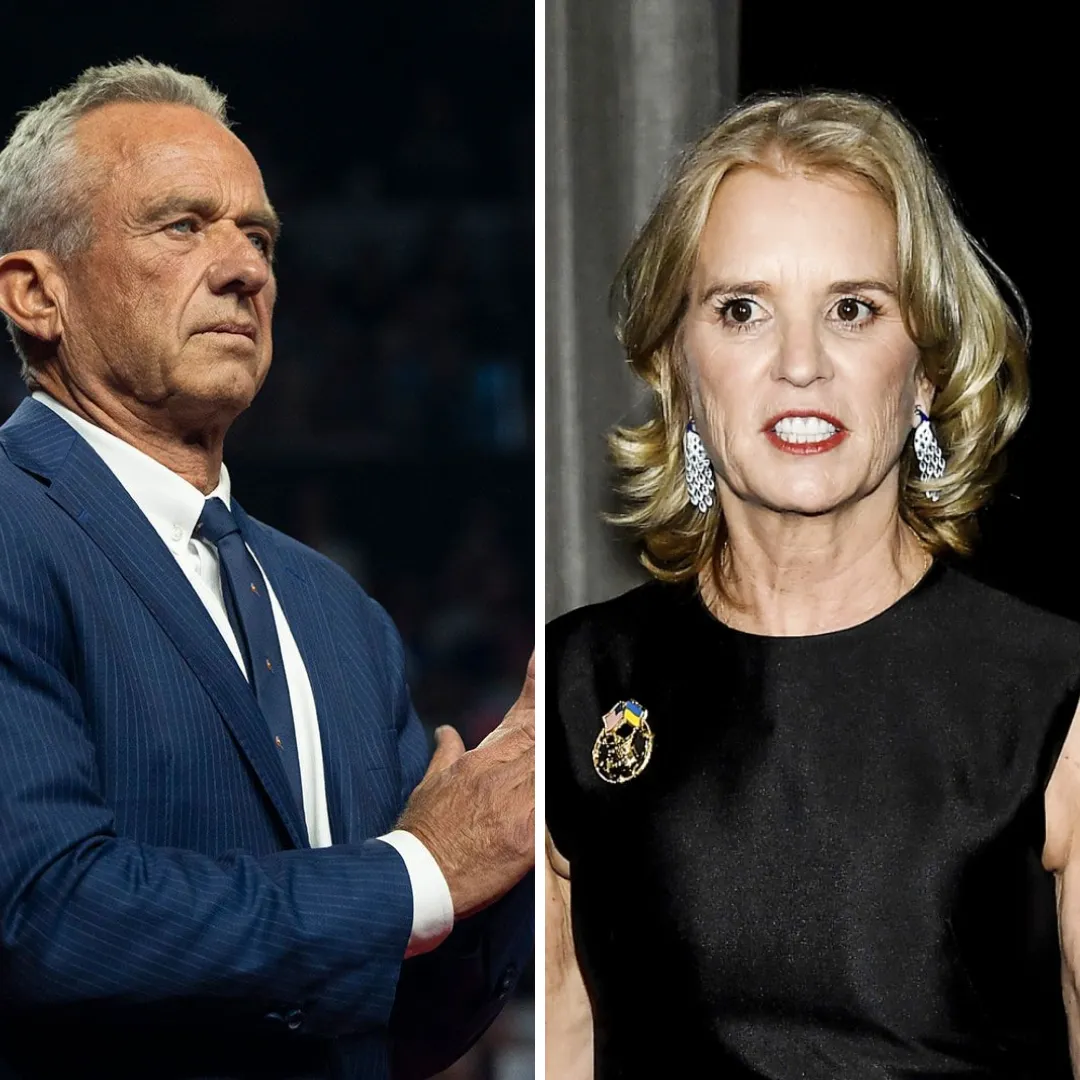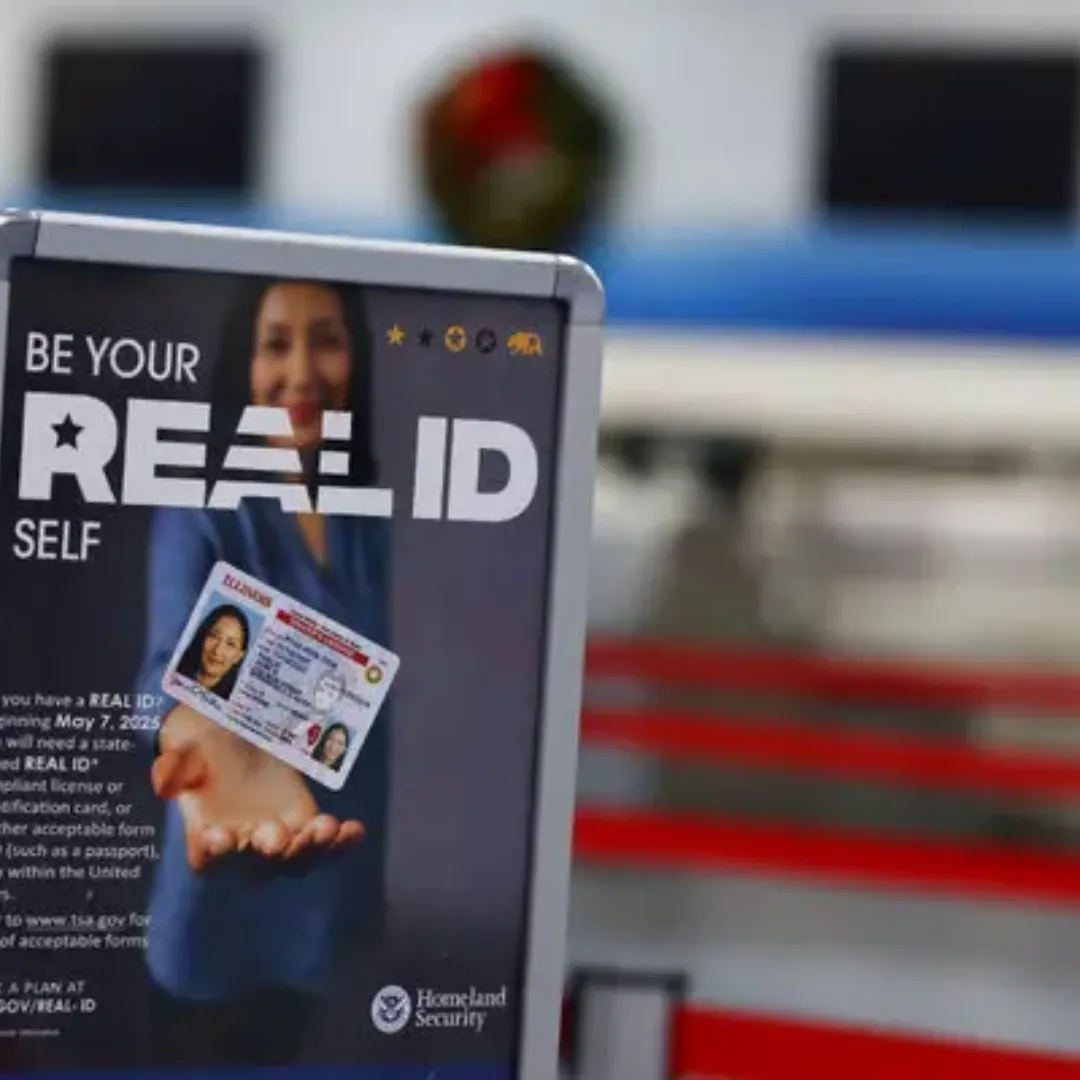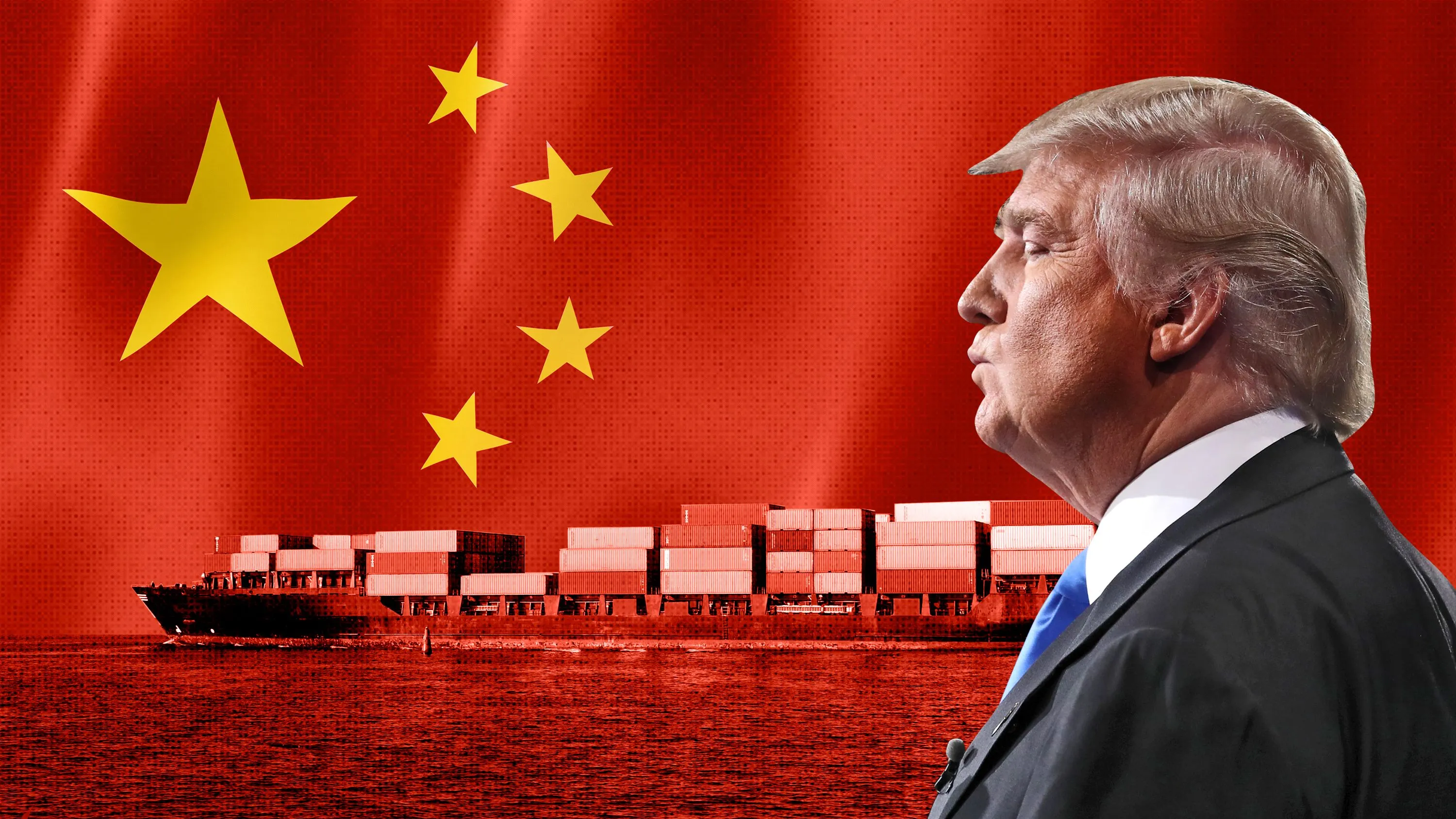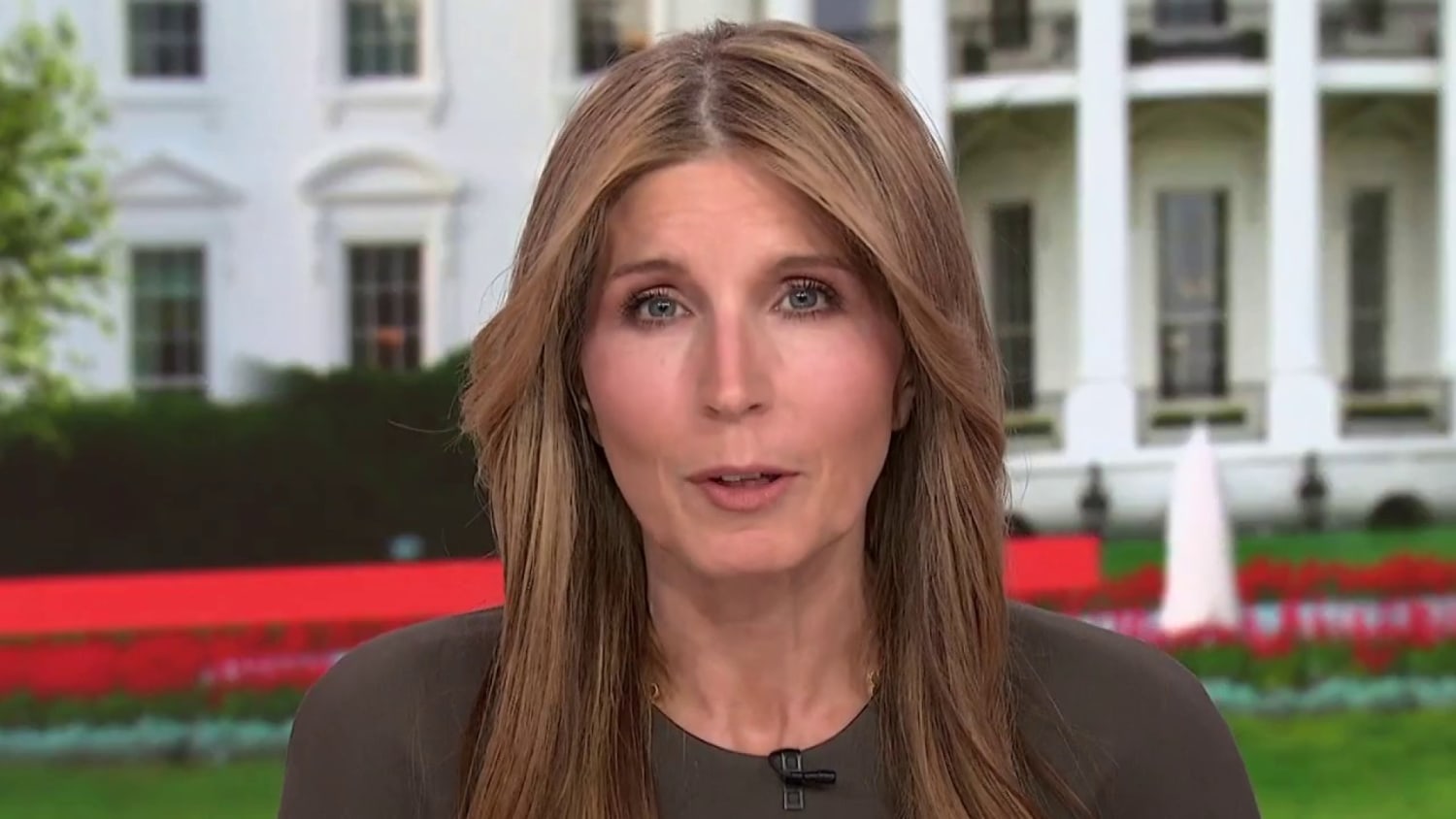
In a compelling and heated discussion on her MSNBC show, Nicolle Wallace, the host of Deadline: White House, argued that the U.S. economy is essentially being “held hostage” by the actions and rhetoric of former President Donald Trump.
The conversation took place against the backdrop of rising concerns about economic stability, particularly as the Federal Reserve warned of the possibility of stagflation—a dangerous mix of high inflation, slow economic growth, and rising unemployment.
As Trump continues his tough talk on trade, particularly with China, the U.S. economy is facing a precarious future, leaving many to question the long-term consequences of his policies.
Joining Wallace for this important discussion were Justin Wolfers, a Professor of Economics and Public Policy at the University of Michigan, former Republican Congressman David Jolly, and Flexport CEO and Founder Ryan Petersen.
Together, they examined the current state of the economy, the risks posed by Trump’s aggressive trade stance, and the potential consequences of his continued disregard for economic realities.
The panel also delved into the warnings issued by the Federal Reserve, which has been sounding alarm bells about the potential for stagflation to take hold if current economic trends continue.
At the heart of the conversation was the way Trump’s economic policies, particularly his trade war with China, have been steering the U.S. economy into a volatile and uncertain future.
Wallace, a seasoned political analyst, didn’t mince words when describing the damage that Trump’s actions are causing. “The U.S. economy is being held hostage by the whims and delusions of one man,” she said, echoing the frustration of many economists who have watched Trump’s trade policies create more instability than they resolve.
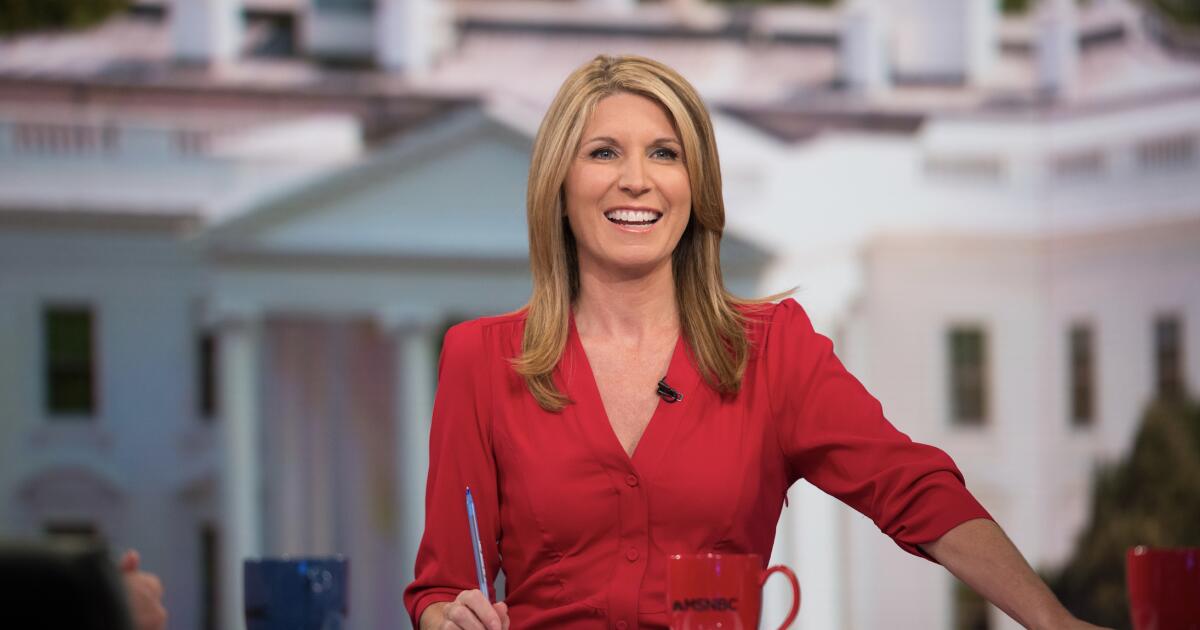
Throughout his presidency, Trump repeatedly emphasized his “America First” trade policies, which included imposing tariffs on billions of dollars’ worth of Chinese goods in an effort to address what he saw as unfair trade practices.
While the goal of reducing the trade deficit with China and bringing manufacturing jobs back to the U.S. sounded appealing to many Americans, the long-term consequences of these policies have raised serious concerns.
Economists like Justin Wolfers have argued that the trade war, particularly with China, has had an adverse effect on the U.S. economy. Wolfers, a leading expert in economics and public policy, explained that Trump’s tariffs have raised the price of consumer goods, which has contributed to the inflationary pressures Americans are feeling today.
“When you impose tariffs on goods from other countries, those costs are passed on to consumers in the form of higher prices. That’s just basic economics,” Wolfers said, adding that Trump’s policies are exacerbating inflation without providing the promised benefits of job creation and economic growth.
Ryan Petersen, the CEO of Flexport, a global logistics company that deals with international trade, also weighed in on the impact of Trump’s trade policies.
Petersen argued that the trade war with China has disrupted global supply chains and created unnecessary uncertainty in international markets. “The trade war has introduced a level of chaos that makes it harder for businesses to plan and invest,” Petersen said.
“When you add tariffs to the mix, it’s like throwing a wrench into a machine that’s already running at full capacity. It slows everything down.”
As if the challenges posed by Trump’s trade policies weren’t enough, the Federal Reserve recently issued a stark warning about the possibility of stagflation—a dangerous economic condition in which inflation rises while economic growth slows and unemployment increases.
This warning has raised alarm bells for both policymakers and the general public, as stagflation is notoriously difficult to combat.
The Federal Reserve, under the leadership of Jerome Powell, has raised interest rates multiple times in an attempt to curb inflation. However, the combination of inflationary pressures from Trump’s tariffs and other supply chain disruptions has made the task of bringing prices under control even more difficult.
While the Fed is trying to rein in inflation through interest rate hikes, many economists worry that this could also lead to a slowdown in economic growth and increased unemployment—two key components of stagflation.
Wolfers pointed out that the Federal Reserve’s job is becoming increasingly difficult due to the mixed signals coming from the economy. “When the Fed raises interest rates to fight inflation, it risks slowing down the economy and increasing unemployment.
But if they don’t do enough to curb inflation, they risk allowing prices to continue rising at an unsustainable rate,” Wolfers explained. “We’re at a very precarious point in the economy where the Fed is trying to find a balance between these two competing forces.”
The risk of stagflation has also been amplified by the ongoing global supply chain crisis, which has been exacerbated by the pandemic and the ongoing geopolitical tensions between the U.S. and China.
With supply chains still struggling to return to normal, businesses are facing increased costs, which are ultimately passed on to consumers. This, in turn, contributes to rising inflation.
However, the economic slowdown caused by rising costs is making it harder for businesses to invest in growth, leading to a potential increase in unemployment.
As the U.S. economy teeters on the brink of potential stagflation, the political divide over economic policy remains stark. Trump and many Republicans continue to argue that the tariffs and protectionist trade policies are necessary to protect American workers and businesses.
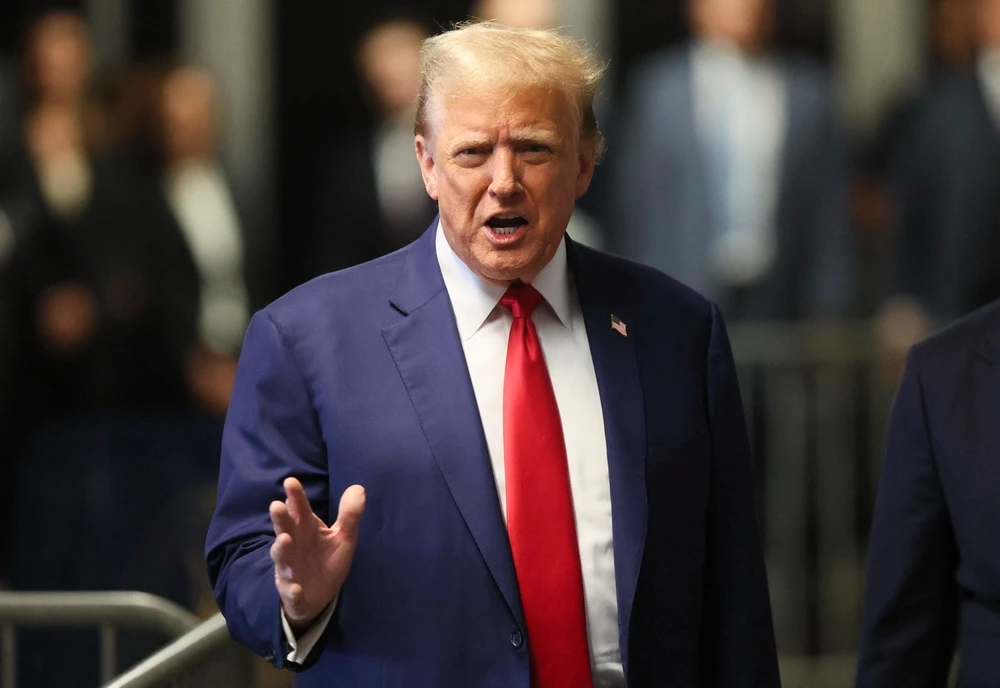
However, critics, including many economists and former lawmakers like David Jolly, argue that Trump’s policies are doing more harm than good.
Jolly, a former Republican congressman, expressed concern that Trump’s trade war with China and his disregard for the broader economic implications of his policies are undermining the long-term health of the U.S. economy.
“The president’s economic policies have been characterized by short-term thinking and a lack of consideration for the long-term consequences,” Jolly said. “Instead of building a sustainable economic strategy, we’re relying on policies that put a strain on American consumers and businesses. The short-term benefits of these policies are being outweighed by the long-term costs.”
Jolly’s comments reflect a growing divide within the Republican Party, with some members beginning to question the efficacy of Trump’s economic policies.
As the country faces rising inflation and the threat of stagflation, there is increasing pressure on the GOP to reconsider its approach to trade and economic policy.
In particular, many Republicans are worried about the political fallout of rising prices and job losses in swing states that are critical to their electoral success.
Another area of concern is Trump’s push to integrate cryptocurrency and blockchain technology into the U.S. economy. Earlier this year, Trump signed an executive order establishing a Strategic Bitcoin Reserve for the U.S. and called for the promotion of blockchain technology.
This directive, while applauded by some in the tech and crypto industries, raises questions about the potential risks of integrating digital currencies into the mainstream economy.

While cryptocurrency has become a popular and increasingly mainstream asset class, it remains highly volatile and unregulated. Critics argue that a rapid shift toward digital currencies could exacerbate the risks of economic instability, particularly as the global economy is already facing significant challenges.
Petersen, the CEO of Flexport, voiced concerns about the role of cryptocurrency in Trump’s broader economic vision, noting that the lack of regulation in the crypto market could create new risks for consumers and businesses.
“Cryptocurrency is still a relatively unregulated market,” Petersen said. “While it has potential as a disruptive technology, there are significant risks involved, especially if the U.S. moves too quickly toward integrating it into the broader economy. We need more regulation and oversight before we embrace it fully.”
As the U.S. economy faces multiple challenges, including the potential for stagflation, rising inflation, and increasing trade tensions, it is clear that the road ahead will not be easy.
Trump’s economic policies, particularly his trade war with China and his push for cryptocurrency adoption, are likely to continue to dominate the political and economic landscape.
However, the difficulties in settling on a consistent message and the growing opposition from both Democrats and Republicans signal that Trump’s approach may not be sustainable in the long run.
While his policies may have garnered support from his base, they have also raised serious concerns among economists, former lawmakers, and ordinary Americans who are struggling with the effects of rising prices and economic uncertainty.
The Federal Reserve’s warnings about stagflation and the continued uncertainty surrounding the global supply chain crisis point to the need for a more balanced and long-term approach to economic policy.

Whether or not the U.S. can navigate these challenges will depend on the ability of policymakers to move beyond short-term political gains and focus on creating a sustainable economic future for all Americans.

